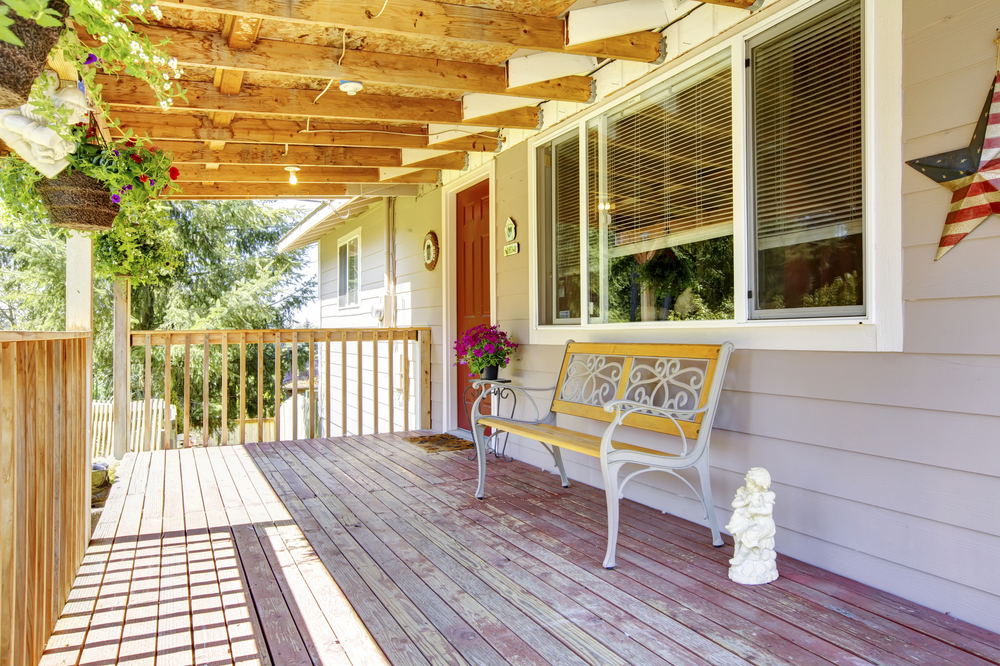Planning How to Attach a Roof over a Deck
Author: Dan Stout | June 14, 2023
For many homeowners, one of the highlights of summer is relaxing on the deck. But rain or excessive sun can cut that outdoor time short. If you want to make deck season last a little longer, it may be time to add a roof.

A covering can make your deck more attractive and comfortable, but it does require some forethought. There are three primary areas to consider when planning how to attach a roof over a deck: permits, deck support and roof integration.
Permits
First, you'll need to research your local regulations and building code requirements. Depending on the state or county you live in, a large-scale home improvement project such as a covered deck may require you to pull a building permit and have the work inspected. Luckily, a deck roof is fairly easy to examine, and any inspections should be limited in scope.
In addition, if you live in a community with a homeowners association or other bylaws, your roof and column design may need to meet additional requirements. You're far better off getting any permissions out of the way before starting work; working without a permit usually incurs a fine.
Deck Support
Depending on how your deck was built originally, it may need additional support to safely handle the increased load of the columns, framing and roof. Cantilevered decks and second story (or higher) decks will almost always require additional supports before adding a roof. If you're ready to dive into the numbers, refer to table 507.3.1 in the International Residential Code for Minimum Footing Size for Decks.
Of course, there are always alternatives. You may choose to extend the roof past the deck, allowing the support columns to rest on their own footings. This can make for a dramatic visual design, as an overhang that's significantly past the deck will look like a design choice rather than a planning convenience.
A common mistake when researching how to attach a roof over a deck is confusing advice about decks with advice about patios. Patios are set directly on the ground, while a deck is a raised platform with framing that typically rests on footers. This may not sound like a massive distinction, but the two structures handle additional weight very differently.
Roof Integration
Integrating the new roof into the existing house structure is usually accomplished in one of two ways: a ledger board or an integrated roof.
If the deck roof will intersect the side of the home, you'll simply need to remove some siding and hang a ledger board. But, if it will intersect with the home's existing roofline, you'll have a more complicated scenario. In that case, you'll need to factor in the slope of the existing roof as well as matching roofing materials.
DIY or Pro?
Every project is unique and will depend on your skillset and comfort level. That's why there's no single right answer for deciding whether to DIY or call in a pro. Before putting a roof over your deck, honestly assess your ability to handle the following:
- Preparation, such as estimating materials, arranging the delivery, pulling permits and drawing plans as needed.
- Framing carpentry, installing the supports and roof frame, and working safely on ladders and at height.
- Roofing, which includes installing the new roof and connecting to the existing roofline as needed.
- Siding, if installing a ledger board.
If you're comfortable tackling a project involving all of that, then this can absolutely be a DIY project. If not, it may be time to find a roofing contractor.